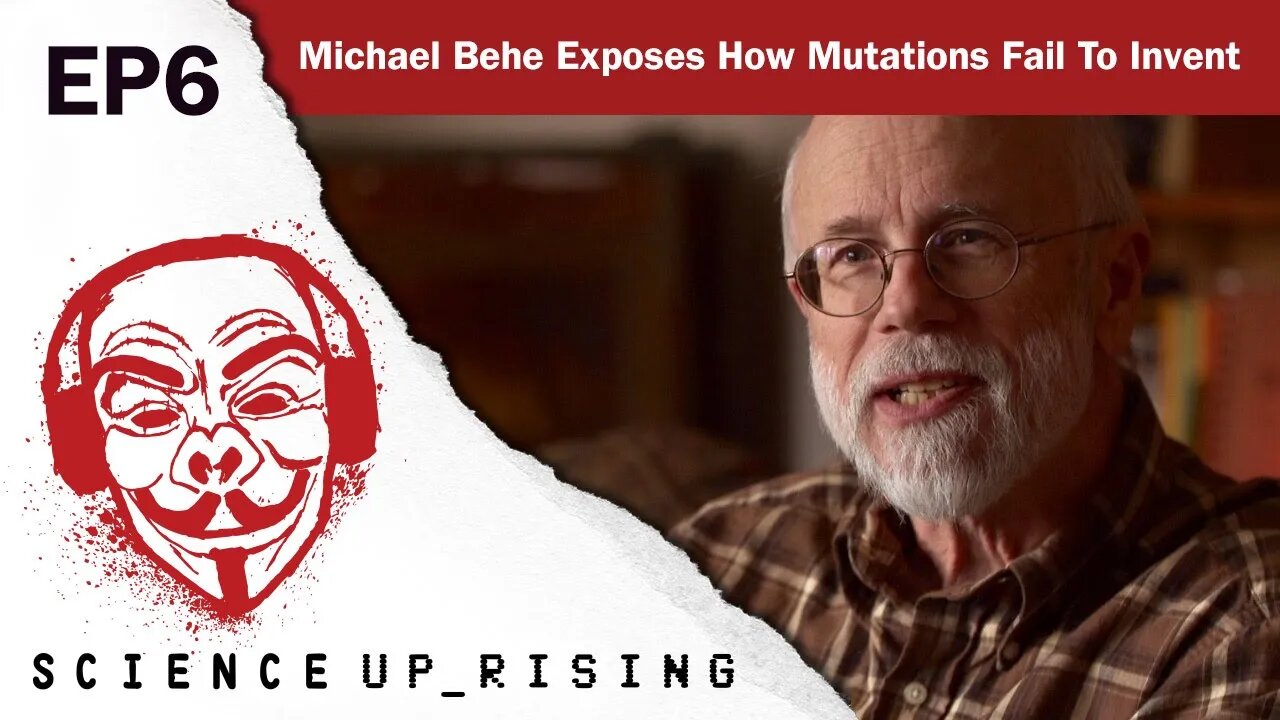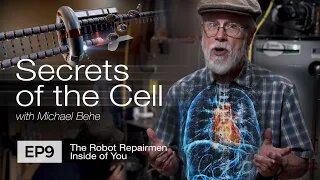Premium Only Content

Michael Behe Exposes How Mutations Fail To Invent (Science Uprising EP6)
Are chance mutations really “the key to our evolution” like they claim in the X-Men films? Or are there strict limits to what mutations can accomplish, limits that point to the need for an overarching designer and the failure of Darwinian evolution to create fundamentally new things? Be sure to visit https://scienceuprising.com/ to find more videos and explore related articles and books.
In this episode of Science Uprising, we'll take a look at the real evidence for the supposed powerhouse of evolution. The featured expert is biochemist Michael Behe of Lehigh University, author of the books Darwin's Black Box, The Edge of Evolution, and Darwin Devolves.
Well-known scientists have been preaching a materialistic worldview rather than presenting the public with all the evidence. We are here to change that. The objective scientific evidence does not prove our universe is blind and purposeless. It does not show we are simply meat machines. It does not prove that evolutionary mechanisms can completely account for the diversity of life on earth. This is what THEY want you to think. Think for yourself and make an informed decision.
Are you ready? The uprising has begun.
In a lecture, Phillip Johnson cited physicist Richard Feynman on a scientist’s obligation to be honest — not only with himself or in other scientific contexts but, not one bit less, when speaking to the lay public. “You should not fool the laymen when you’re talking as a scientist.” That such a thing would need to be said is itself revealing. What’s more, Feynman insisted, you should “bend over backwards to show how you may be wrong.”
The comments are taken from a Commencement address by Feynman in 1974 at Caltech. Johnson, a founding father of modern intelligent design, was so moved by this that he said “I wish it could be set to music.”
As far as I know it hasn’t been set to music. But the idea is a major theme in the new Science Uprising series. Scientists fool themselves and they fool non-scientists, not about dry technical details with no special significance, but about matters that bear on huge, life-altering world picture issues. One example is the role of mutations in evolution. That is the topic of Episode 6 of Science Uprising, “Mutations: Failure to Invent.” It’s out now; see it here:
The Alternative Perspective
The idea that random genetic mutations lead to wondrous, creative innovations is so influential that it forms the premise of a movie franchise, X-Men, that has grossed $6 billion worldwide over the past couple of decades. That’s a lot of “fooling the laymen”! The alternative perspective would be open to the possibility of creative evolution requiring intelligence guidance.
The producers of the X-Men movies aren’t scientists. However, the science media have done their best to mislead about the work of real scientists, including National Academy of Sciences member Richard Lenski. We’re all victims of that hype, including Hollywood moviemakers. Dismantling the hype about Lenski occupies biochemist Michael Behe for a significant part of his recent book, Darwin Devolves.
Super-Challenges Not Super-Powers
As Professor Behe explains in Science Uprising, the Long-Term Evolution Experiment conducted by Lenski has demonstrated not the creative power of unguided evolution but the occasional benefits of devolution, of breaking or disabling genes. That’s the opposite lesson from the one drawn by media such as the New York Times in reporting on Lenski’s efforts. “Think about it,” says the masked narrator of Science Uprising, against the backdrop of poignant images of people suffering from genetic illnesses, “significant mutations don’t create superpowers. They create super-challenges. Sometimes those mutations are even life-threatening.”
Check out some of our other videos:
Information Enigma: Where does information come from?
Information drives the development of life. But what is the source of that information? https://youtu.be/aA-FcnLsF1g
Science Uprising Episode 1 - Reality: Real vs. Material
Has science proven we are all just matter? Or does reality extend beyond what we can see and touch? https://youtu.be/Fv3c7DWuqpM
Bijan Nemati: Rare Earth
https://youtu.be/vn3YpOWCrc4
Check out other videos from this playlist:
https://www.youtube.com/playlist?list=PLR8eQzfCOiS1OmYcqv_yQSpje4p7rAE7-
Subscribe to our channel: https://www.youtube.com/user/DiscoveryScienceNews
============================
-
 12:30
12:30
Center for Science and Culture
2 months agoThe Robot Repairmen Inside You (Secrets of the Cell, Ep. 9 feat. biologist Michael Behe)
86 -
 LIVE
LIVE
LFA TV
15 hours agoKASH CONFIRMATION & PRESS BRIEFING! | LIVE FROM AMERICA 2.20.25 11AM
6,151 watching -
 2:14:42
2:14:42
Matt Kohrs
12 hours agoIt's A Bull Trap, Partner! || The MK Show
30.7K2 -
 40:25
40:25
BonginoReport
5 hours agoTrump Cancels Zelensky’s 'Gravy Train' (Ep.144) - 02/20/2025
80.6K116 -
 2:59:17
2:59:17
Wendy Bell Radio
7 hours agoLONG LIVE THE KING
55.4K57 -
 1:27:55
1:27:55
Game On!
19 hours ago $6.63 earnedThe BIGGEST Hockey Match of the Century: USA vs Canada!
95.9K11 -
 17:20
17:20
Bearing
3 hours agoElon Musk's Baby Mama Drama 😧 Did he Stick it in CRAZY??
26K10 -
 1:10:27
1:10:27
2 MIKES LIVE
3 hours agoTHE MIKE SCHWARTZ SHOW with DR. MICHAEL J SCHWARTZ 02-20-2025
16K2 -
 10:33
10:33
ThinkStory
20 hours agoCOMPANION Ending Explained!
75.5K4 -
 19:59
19:59
Neil McCoy-Ward
21 hours ago🇺🇸 $5,128.21 DOGE Stimulus Check Refund?! Here’s What You Need to Know!
56.9K26